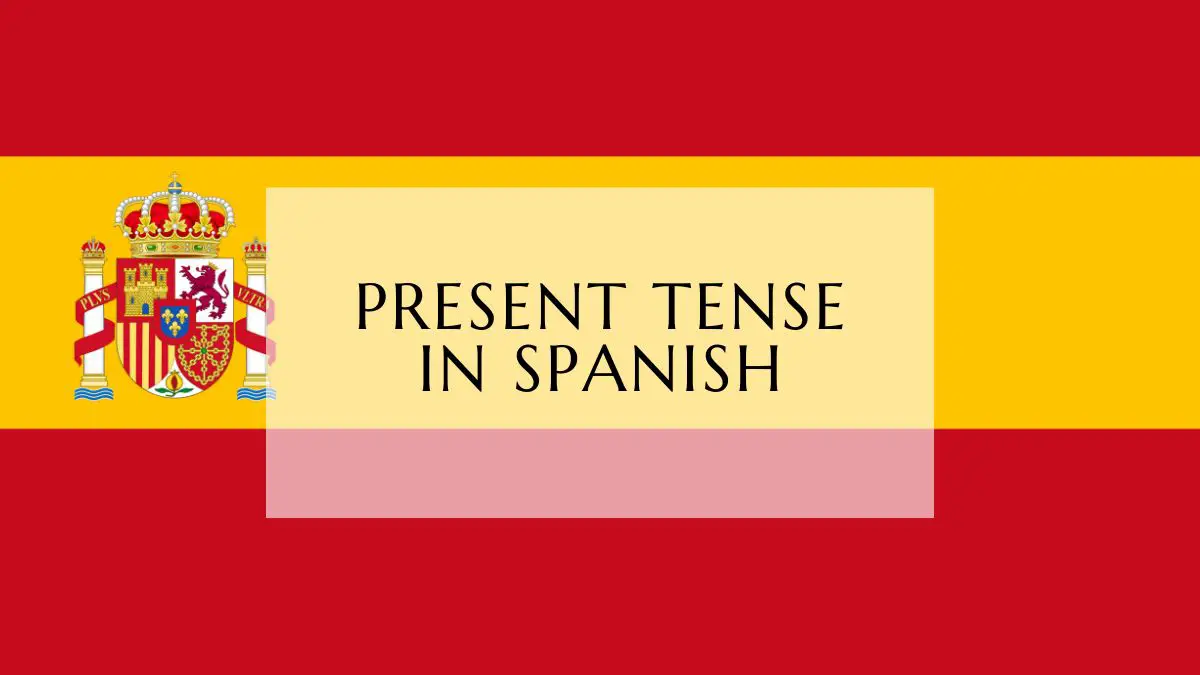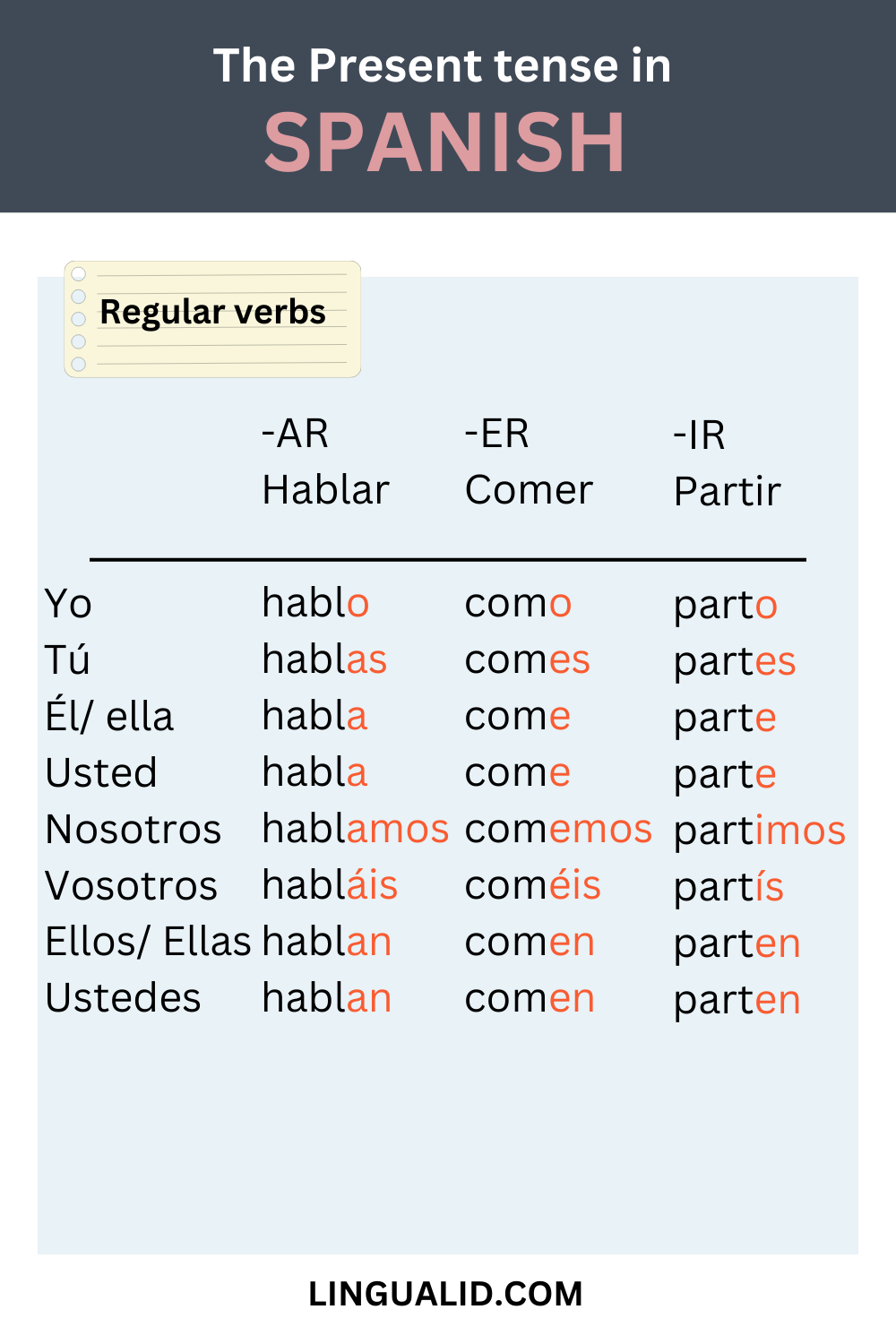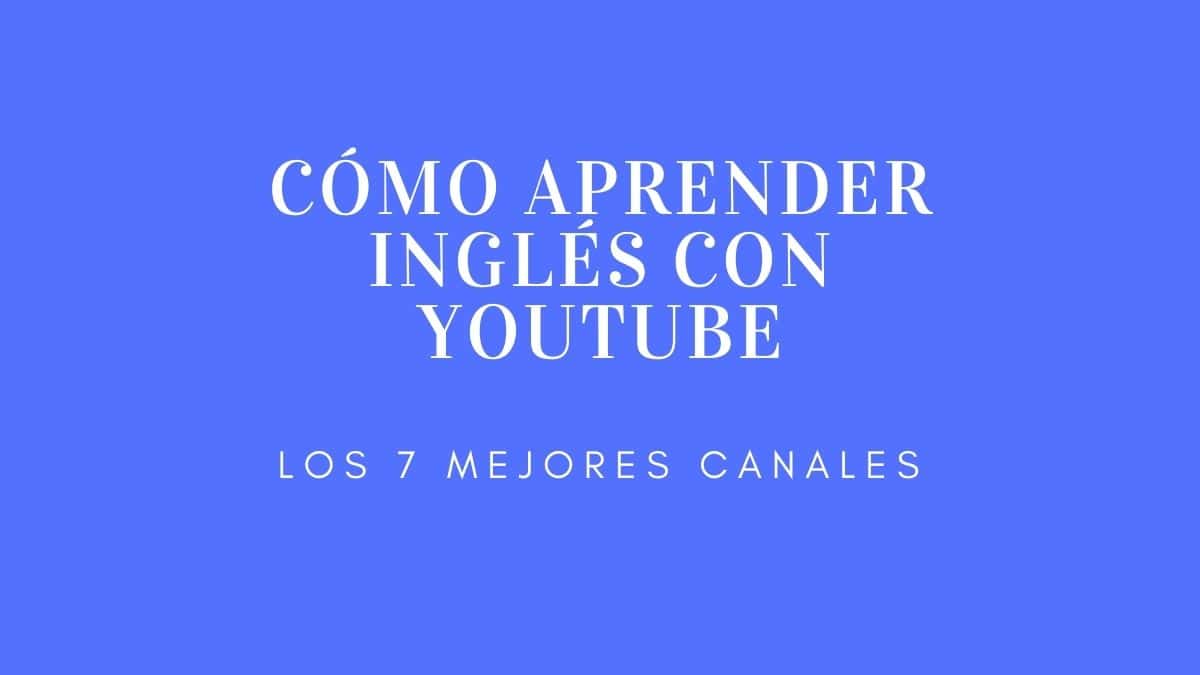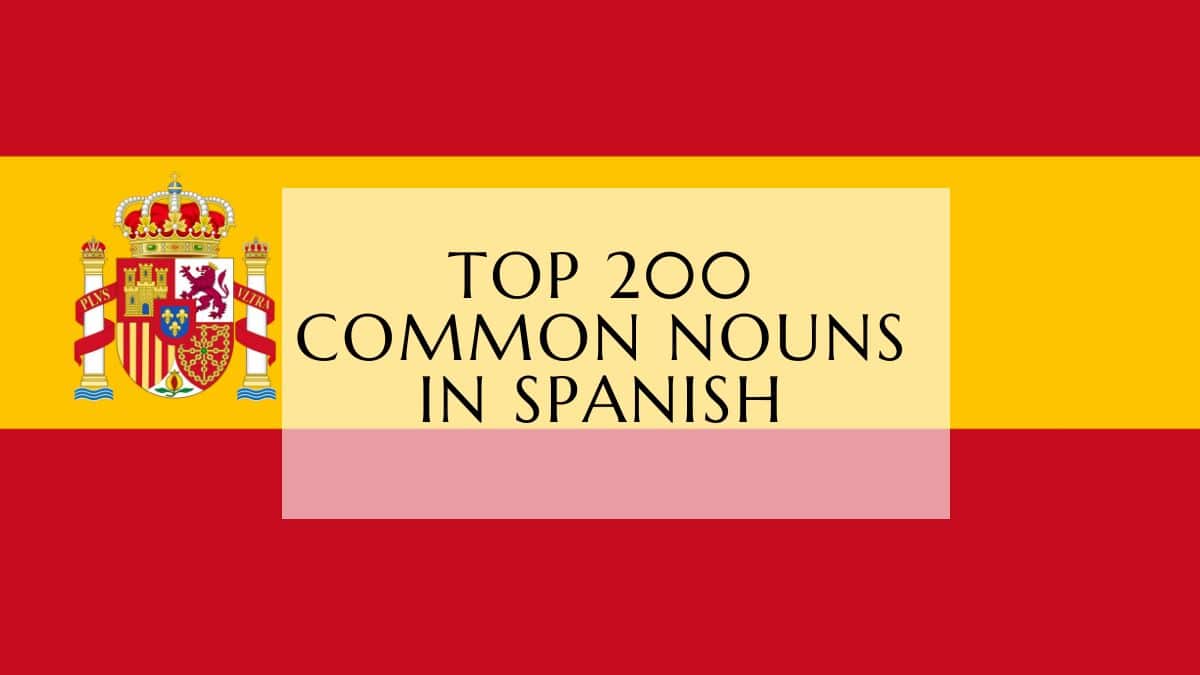The present tense in Spanish is pretty straightforward as there is a simple form to apply to verbs to get the conjugation right, but bear in mind that there are 3 types of endings in Spanish verbs: -AR, -ER, and -IR which we will explain and give some examples.

Present Tense In Spanish
Verbs in Spanish have three endings: -ar, -er, -ir, for regular verbs, the stem doesn’t change and we conjugate according to their endings, let’s start with verbs that end with -ar.
Verbs that end with -ar
| Yo | -o |
| Tú | -as |
| Él/ ella | -a |
| Usted | -a |
| Nosotros / Nosotras | -amos |
| Vosotros / Vosotras | -áis |
| Ellos / Ellas | -an |
| Ustedes | -an |
Example: Estudiar (to study):
| Yo | estudo |
| Tú | estudas |
| Él/ ella | estuda |
| Usted | estuda |
| Nosotros / Nosotras | estudamos |
| Vosotros / Vosotras | estudáis |
| Ellos / Ellas | estudan |
| Ustedes | estudan |
Example: Hablar (to speak):
| Yo | hablo |
| Tú | hablas |
| Él/ ella | habla |
| Usted | habla |
| Nosotros / Nosotras | hablamos |
| Vosotros / Vosotras | habláis |
| Ellos / Ellas | hablan |
| Ustedes | hablan |
Verbs that end with -er
| Yo | -o |
| Tú | -es |
| Él/ ella | -e |
| Usted | -e |
| Nosotros / Nosotras | -emos |
| Vosotros / Vosotras | -éis |
| Ellos / Ellas | -en |
| Ustedes | -en |
Example: aprender (to learn)
| Yo | aprendo |
| Tú | aprendes |
| Él/ ella | aprende |
| Usted | aprende |
| Nosotros / Nosotras | aprendemos |
| Vosotros / Vosotras | aprendéis |
| Ellos / Ellas | aprenden |
| Ustedes | aprenden |
Example: comer (to eat)
| Yo | como |
| Tú | comes |
| Él/ ella | come |
| Usted | come |
| Nosotros / Nosotras | comemos |
| Vosotros / Vosotras | coméis |
| Ellos / Ellas | comen |
| Ustedes | comen |
Note: you can practice what you’ve learned here, and learn how to pronounce each of the words in our Memrise course here, don’t know how to use the platform or sign up? we’ve got you covered in this easy-to-follow tutorial here.
Verbs that end with -ir
| Yo | -o |
| Tú | -es |
| Él/ ella | -e |
| Usted | -e |
| Nosotros / Nosotras | -imos |
| Vosotros / Vosotras | -ís |
| Ellos / Ellas | -en |
| Ustedes | -en |
Example: decidir (to decide)
| Yo | decido |
| Tú | decides |
| Él/ ella | decide |
| Usted | decide |
| Nosotros / Nosotras | decidimos |
| Vosotros / Vosotras | decidís |
| Ellos / Ellas | deciden |
| Ustedes | deciden |
Example: partir (to leave)
| Yo | parto |
| Tú | partes |
| Él/ ella | parte |
| Usted | parte |
| Nosotros / Nosotras | partimos |
| Vosotros / Vosotras | partís |
| Ellos / Ellas | parten |
| Ustedes | parten |

Spanish Present Tense Review
Short Answer Questions:
- What are the three verb endings for regular verbs in the Spanish present tense?
- Conjugate the verb “hablar” (to speak) in the present tense for the pronoun “él/ella”.
- What is the pronoun and verb ending combination for the “vosotros/vosotras” form in the present tense?
- Provide the conjugated form of “aprender” (to learn) for the pronoun “nosotros/nosotras”.
- What is the difference in the present tense conjugation of “-ar” verbs compared to “-er” and “-ir” verbs in the “yo” form?
- Conjugate the verb “comer” (to eat) in the present tense for the pronoun “tú”.
- What is the stem change, if any, for regular verbs in the Spanish present tense?
- Provide an example of a conjugated verb in the “ustedes” form using a verb of your choice.
- What are the pronouns associated with the verb ending “-en” in the present tense?
- Conjugate the verb “decidir” (to decide) in the present tense for the pronoun “yo”.
Short Answer Key:
- -AR, -ER, -IR
- Él/ella habla
- Vosotros/Vosotras -áis/-éis
- Nosotros/nosotras aprendemos
- There is no difference in the “yo” form for regular verbs. All use the “-o” ending.
- Tú comes
- There are no stem changes for regular verbs in the Spanish present tense.
- Example using “estudiar”: Ustedes estudian
- Ellos/Ellas/Ustedes
- Yo decido
Happy learning!
Oualid Cheddadi is the founder of Lingualid, a platform that inspires independent language learners worldwide, regardless of the language they are learning. The name “Lingualid” is derived from the Portuguese word for “language,” “língua,” and the last three letters of Oualid’s name, “Lid.”



